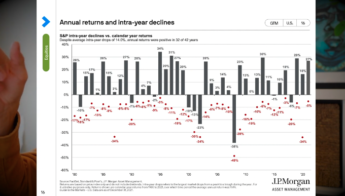Podcast: Play in new window | Download | Embed
Subscribe: RSS
Wouldn’t it be great if your investment dollars were able to impact the way the world’s largest companies conduct business? Thanks to Socially Responsible Investing (SRI), investors have the ability to invest in companies meeting a variety of different screens in an attempt to do just that. One of the most popular themes of SRI is ESG investing, which places an emphasis on rewarding companies with “good” environmental, social and corporate governance scores. ESG has caught the attention of large institutional investors, financial advisors, and to some extent, the average investor.
In the nineteenth episode of All About Your Benjamins The Podcast, I’m joined by my friend, Joey Fishman, an Investment Advisor Representative with Ritholtz Wealth Management. I give Joey the credit for opening my eyes to Socially Responsible Investing and encouraging me to learn more about it, so it was a no-brainer that I have him on to introduce listeners to SRI, specifically ESG investing, share how his firm is bringing the investment strategy to their clients, discuss the problems SRI faces and share his view on the future of investing within the space.
Even though I’ve spent many hours reading and learning about Socially Responsible Investing, I still learned a lot from my conversation with Joey. Before you listen, I’d like to leave you with one quote from Joey summarizing ESG investing’s goal…
“ESG falls under the broader mandate of Socially Responsible investing…what ESG essentially attempts to do is strikes the right balance between market-level returns and pushing to have some semblance of better output in terms of social values.”
I hope you enjoy!
iTunes: All About Your Benjamins The Podcast Ep. 019 (coming soon)
Show Notes
How Investors Can (And Can’t) Create Social Value
Disclaimer: Nothing on this blog should be considered advice, or recommendations. If you have questions pertaining to your individual situation you should consult your financial advisor. For all of the disclaimers, please see my disclaimer page.



